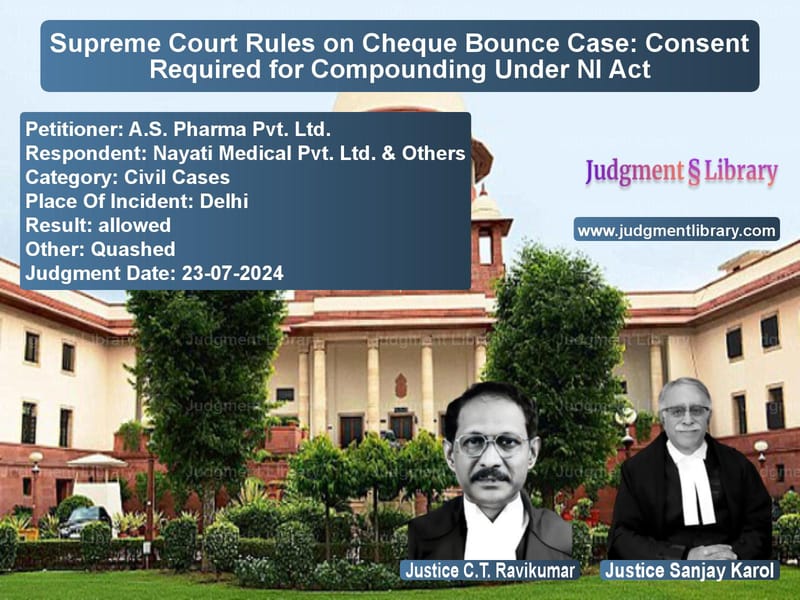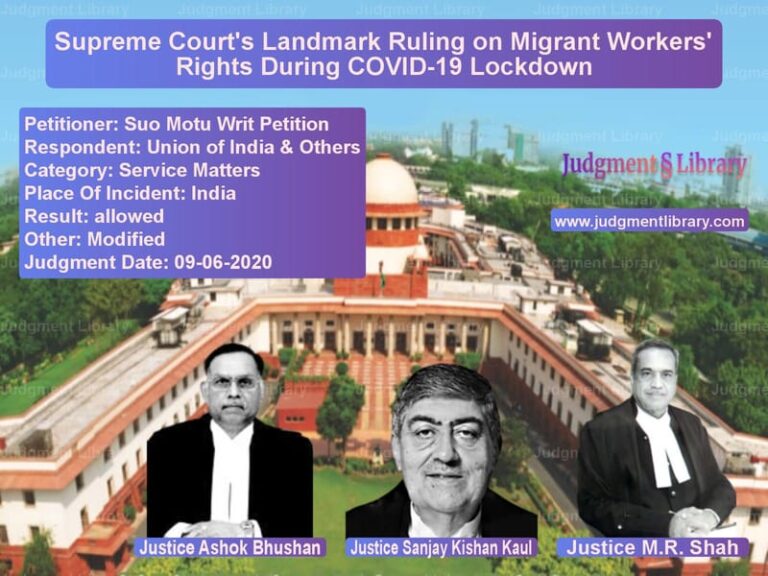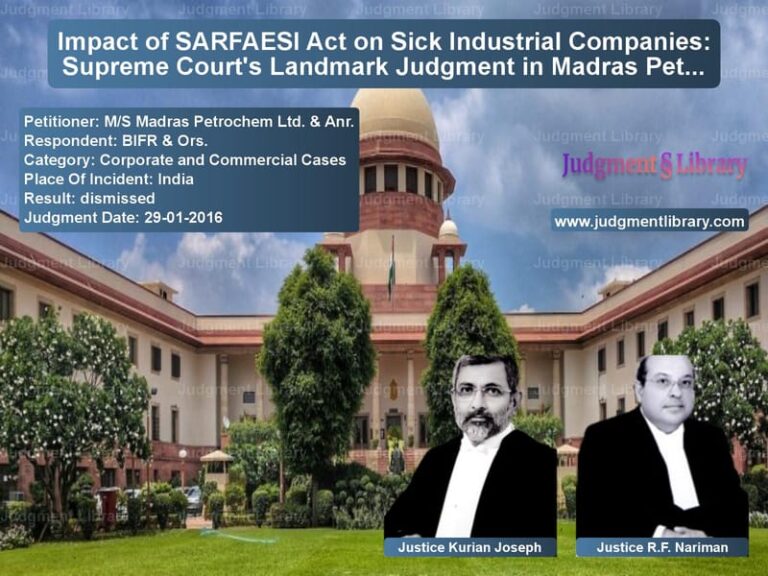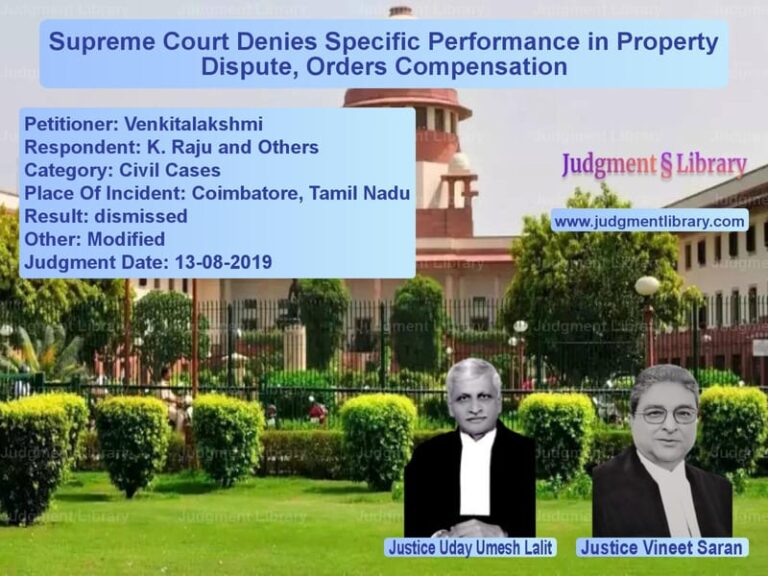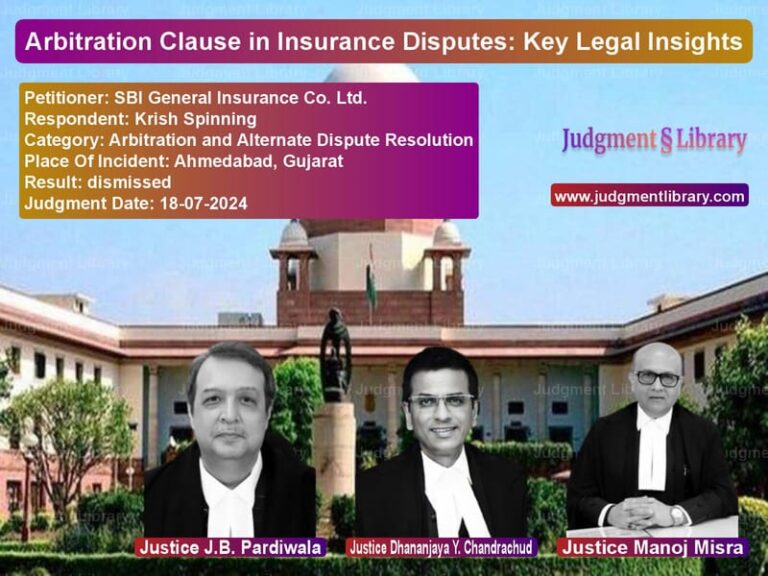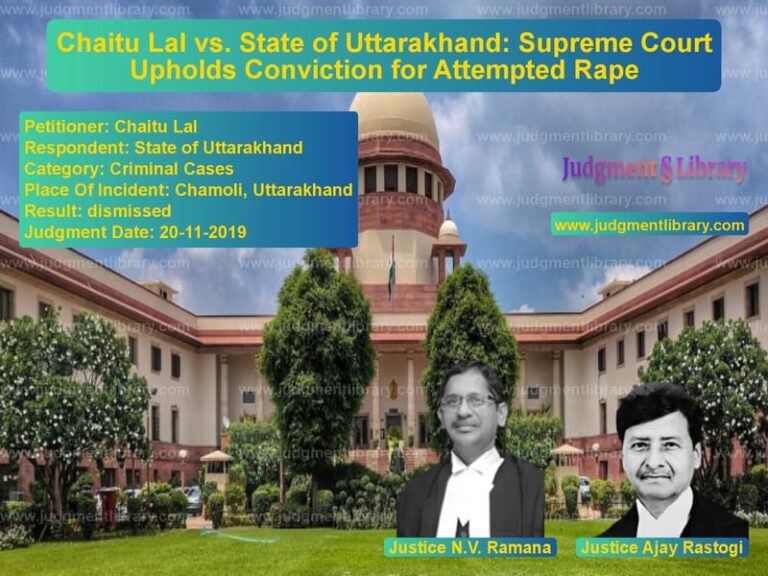Supreme Court Rules on Cheque Bounce Case: Consent Required for Compounding Under NI Act
The Supreme Court of India has issued a significant ruling in A.S. Pharma Pvt. Ltd. v. Nayati Medical Pvt. Ltd., clarifying the application of compounding offenses under Section 138 of the Negotiable Instruments Act, 1881 (NI Act). The case revolved around the question of whether the High Court could compound an offense under the NI Act without the complainant’s consent using its inherent powers under Section 482 of the Code of Criminal Procedure (CrPC). The judgment reaffirms that compounding requires mutual agreement and that courts cannot impose compounding in the absence of consent from the complainant.
Background of the Case
The dispute began when A.S. Pharma Pvt. Ltd. filed a complaint under Section 138 of the NI Act against Nayati Medical Pvt. Ltd. due to a bounced cheque amounting to Rs. 6,50,000. The respondents expressed their willingness to settle the matter and filed an application to compound the offense. However, the Trial Court dismissed their request. The respondents then approached the Delhi High Court, which invoked its powers under Section 482 of the CrPC and Section 147 of the NI Act to compound the offense without the complainant’s consent.
Aggrieved by this decision, A.S. Pharma Pvt. Ltd. challenged the High Court’s ruling in the Supreme Court, arguing that compounding cannot be imposed without the complainant’s agreement.
Key Legal Issues Before the Supreme Court
- Whether the High Court can invoke its inherent powers under Section 482 CrPC to compound an offense under Section 138 of the NI Act without the complainant’s consent.
- Whether compounding under Section 147 of the NI Act requires the complainant’s explicit agreement.
- Whether the High Court’s decision to allow compounding without consent was legally justified.
Petitioner’s Arguments
The appellant, A.S. Pharma Pvt. Ltd., through its counsel, argued:
- Compounding of offenses under Section 138 of the NI Act requires the consent of the complainant, as reaffirmed in previous Supreme Court judgments.
- The High Court exceeded its jurisdiction by using its inherent powers under Section 482 CrPC to impose compounding without consent.
- The ruling of the High Court was contrary to established precedents that mandate mutual agreement for compounding under the NI Act.
- The High Court’s decision effectively deprived the complainant of its legal remedies and rightful compensation.
Respondent’s Arguments
Nayati Medical Pvt. Ltd. defended the High Court’s decision, stating:
- The offense under Section 138 NI Act is compoundable as per Section 147 of the Act, and the High Court acted within its powers.
- The complainant was equitably compensated, and further prosecution was unnecessary.
- The High Court’s intervention was justified in preventing unnecessary litigation.
Supreme Court’s Observations
The Supreme Court extensively analyzed the legal framework governing compounding of offenses under the NI Act.
1. Compounding Requires Mutual Agreement
The Court reaffirmed that compounding under Section 138 of the NI Act requires the explicit consent of the complainant. The High Court erred in imposing compounding without such agreement.
2. Limitations of Section 482 CrPC
While Section 482 CrPC grants inherent powers to the High Court to prevent abuse of the judicial process, it does not override statutory requirements. The Court noted that inherent powers cannot be used to bypass the requirement of consent for compounding under the NI Act.
3. Precedents on Compounding
The Court cited JIK Industries Ltd. v. Amarlal V. Jumani and Damodar S. Prabhu v. Sayed Babalal H., which establish that compounding under Section 138 NI Act is permissible only when both parties agree. The High Court’s ruling was contrary to these precedents.
4. Difference Between Compounding and Quashing
The Court clarified that compounding is distinct from quashing criminal proceedings. While the Supreme Court has the power under Article 142 of the Constitution to quash cases in the interest of justice, High Courts do not possess similar authority under Section 482 CrPC.
Final Judgment
The Supreme Court ruled in favor of A.S. Pharma Pvt. Ltd., stating:
- The High Court exceeded its jurisdiction by compounding the offense without the complainant’s consent.
- The ruling was contrary to established legal principles requiring mutual agreement for compounding.
- The decision of the High Court was quashed, and the case was remanded to the Trial Court for further proceedings.
Implications of the Judgment
This ruling sets a significant precedent for cheque bounce cases and compounding of offenses under the NI Act. It reaffirms the complainant’s right to reject compounding and ensures that courts do not impose settlements without mutual consent.
The judgment serves as a guideline for future cases, ensuring that compounding remains a voluntary process and cannot be imposed through judicial discretion in violation of statutory requirements.
Petitioner Name: A.S. Pharma Pvt. Ltd..Respondent Name: Nayati Medical Pvt. Ltd. & Others.Judgment By: Justice C.T. Ravikumar, Justice Sanjay Karol.Place Of Incident: Delhi.Judgment Date: 23-07-2024.
Don’t miss out on the full details! Download the complete judgment in PDF format below and gain valuable insights instantly!
Download Judgment: a.s.-pharma-pvt.-ltd-vs-nayati-medical-pvt.-supreme-court-of-india-judgment-dated-23-07-2024.pdf
Directly Download Judgment: Directly download this Judgment
See all petitions in Cheque Dishonour Cases
See all petitions in Contract Disputes
See all petitions in Damages and Compensation
See all petitions in Specific Performance
See all petitions in Debt Recovery
See all petitions in Judgment by C.T. Ravikumar
See all petitions in Judgment by Sanjay Karol
See all petitions in allowed
See all petitions in Quashed
See all petitions in supreme court of India judgments July 2024
See all petitions in 2024 judgments
See all posts in Civil Cases Category
See all allowed petitions in Civil Cases Category
See all Dismissed petitions in Civil Cases Category
See all partially allowed petitions in Civil Cases Category

